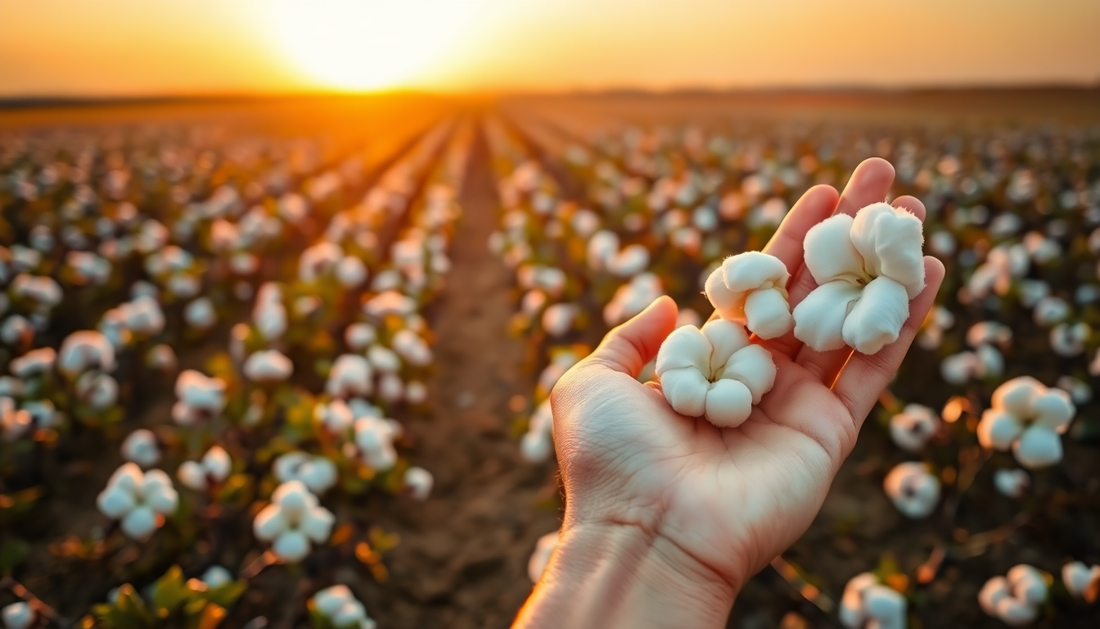In a world increasingly conscious of the environmental impact of our choices, the demand for sustainable and eco-friendly products has never been higher. One material that has emerged as a shining beacon of hope in this movement is organic cotton. As we navigate the complexities of modern consumerism, understanding the true value of organic cotton and how to make informed decisions can be a game-changer in our pursuit of a greener tomorrow.
The Essence of Organic Cotton
Organic cotton is a natural fiber that is grown without the use of synthetic pesticides, fertilizers, or other harmful chemicals. Unlike conventional cotton, which relies heavily on these substances, organic cotton is cultivated using sustainable farming practices that prioritize the health of the soil, the environment, and the people involved in the production process. This holistic approach not only benefits the planet but also ensures that the final product is free from potentially harmful residues, making it a safer and more ethical choice for consumers.
The Process of Producing Organic Cotton
The journey of organic cotton begins with the careful selection of seeds and the implementation of organic farming methods. These methods involve the use of natural fertilizers, such as compost and manure, as well as the incorporation of crop rotation and other techniques that promote soil health and biodiversity. The cotton is then harvested by hand, ensuring minimal disruption to the delicate ecosystem. The processing and manufacturing stages also adhere to strict guidelines, with the cotton being cleaned, spun, and woven without the use of harsh chemicals or synthetic dyes.
The Benefits of Organic Cotton
The advantages of choosing organic cotton extend far beyond the individual consumer. By opting for organic cotton, you are not only investing in your own well-being but also contributing to the greater good of the planet and the communities involved in the production process.
Environmental Advantages
Organic cotton cultivation has a significantly lower environmental impact compared to conventional cotton. It reduces the use of harmful pesticides and fertilizers, which can contaminate soil, water, and air, and it also conserves precious natural resources like water. Additionally, the organic farming practices employed in the production of organic cotton help to sequester carbon, making it a more sustainable choice in the fight against climate change.
Health Benefits for Consumers
Organic cotton is free from the chemical residues that can be found in conventional cotton. This means that the fabrics and products made from organic cotton are safer for your skin and pose a lower risk of allergic reactions or other health concerns. By choosing organic cotton, you are not only protecting yourself but also supporting a more transparent and responsible supply chain.
Ethical Considerations
The organic cotton industry is often associated with fair labor practices and the empowerment of local communities. Many organic cotton farmers and producers adhere to strict social and environmental standards, ensuring that the people involved in the production process are treated with dignity and respect. This ethical approach aligns with the growing consumer demand for products that align with their values and contribute to a more just and equitable world.
Identifying Genuine Organic Cotton
With the increasing popularity of organic cotton, it's essential to be able to distinguish genuine organic cotton from products that may claim to be organic but do not meet the necessary standards. Look for certifications from reputable organizations, such as the Global Organic Textile Standard (GOTS) or the Organic Content Standard (OCS), which ensure that the cotton has been produced and processed according to strict guidelines. Additionally, pay attention to the labeling and packaging of the products, as genuine organic cotton will often display these certifications prominently.
Factors to Consider When Choosing Organic Cotton
When selecting organic cotton products, there are several factors to keep in mind beyond just the organic certification. Consider the quality and durability of the fabric, as well as its comfort and feel. Additionally, be mindful of the price point, as organic cotton may come with a higher price tag due to the more labor-intensive production process. However, the long-term benefits and the positive impact on the environment and communities often outweigh the initial cost.
Popular Organic Cotton Products
Organic cotton has found its way into a wide range of products, from clothing and home textiles to personal care items. From soft and breathable organic cotton t-shirts and dresses to cozy organic cotton bedding and towels, the options are endless. Consumers can also find organic cotton in personal care products like cotton swabs, makeup pads, and even baby diapers, ensuring that their daily routines are aligned with their sustainable values.
Caring for Organic Cotton
Maintaining the longevity and quality of organic cotton products requires a bit of care and attention. When washing organic cotton items, it's best to use a gentle detergent and avoid harsh chemicals or bleach. Opt for air-drying or low-heat settings in the dryer to preserve the natural fibers. Proper storage, such as avoiding direct sunlight and excessive heat or humidity, can also help extend the lifespan of your organic cotton possessions.
The Future of Organic Cotton
As the world becomes increasingly conscious of the environmental and social impact of our choices, the demand for organic cotton is expected to continue growing. Advancements in technology and farming techniques are paving the way for even more efficient and sustainable production methods, while consumer awareness and advocacy are driving the industry to become more transparent and accountable. The future of organic cotton is bright, and by embracing its purity and versatility, we can all play a role in shaping a greener, more equitable tomorrow.
Conclusion
Organic cotton is not just a material; it is a symbol of our collective commitment to a more sustainable and ethical future. By choosing organic cotton, we are making a statement about the kind of world we want to live in – one that prioritizes the health of our planet, the well-being of its people, and the preservation of our natural resources. As we navigate the complexities of modern consumerism, let us embrace the purity of organic cotton and use our purchasing power to drive positive change, one thread at a time.

